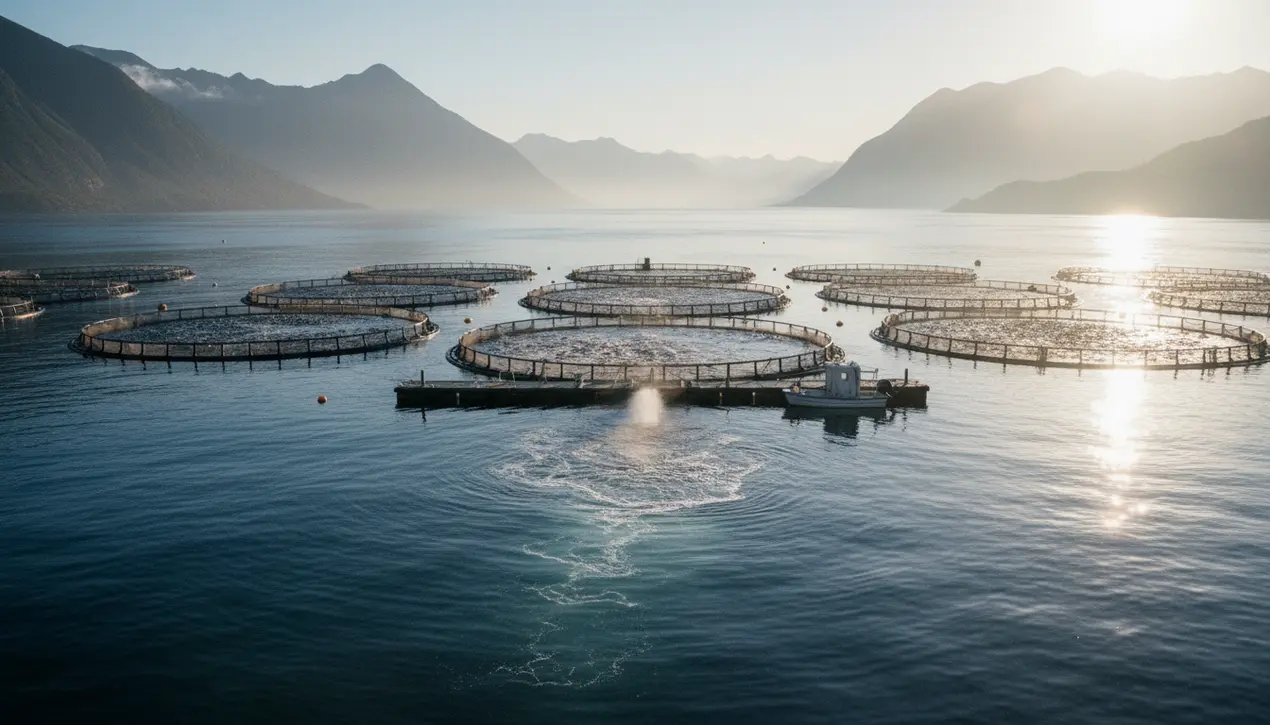
SciencebiologyMarine Biology
Eating the Ocean: The Hidden World of Fish Farming
RA
Rachel Adams
5 hours ago7 min read6 comments
Beneath the placid surface of our global waters, a quiet revolution in food production is unfolding with profound ecological consequences. While Vox's Future Perfect has rigorously documented the ethical and environmental costs of terrestrial factory farming—where approximately 80 billion land animals are raised and slaughtered annually—an even larger, more opaque story is submerged within our oceans.The scale is almost incomprehensible; humans now consume hundreds of billions, perhaps even trillions, of aquatic animals each year. A pivotal and alarming shift occurred in 2022, when the majority of fish consumed globally no longer came from wild catches but from aquaculture operations, systems so inherently cruel and intensive they have been rightly labeled by animal welfare advocates as 'underwater factory farms.' This is not merely a story of numbers, but one of fundamental transformation in our relationship with marine ecosystems. Aquaculture stands as the fastest-growing agricultural sector worldwide, its expansion driven by declining wild fish stocks and rising global protein demand.Yet this growth carries a devastating ecological price. The rapid domestication of species like the Atlantic salmon—a creature evolutionarily hardwired for epic migrations across hundreds of miles of open ocean—and their subsequent confinement in densely packed net pens creates a cascade of problems.These range from localized pollution from waste and antibiotics to the spread of diseases and parasites to wild populations, effectively creating dead zones in surrounding waters. The ethical considerations are equally murky and profound, centering on the long-debated question of piscine sentience.The scientific community is increasingly converging on the understanding that fish do indeed experience pain and stress, a reality that makes the conditions on these farms—where creatures are confined in densities that would be unthinkable for terrestrial livestock—a significant moral crisis. This extends even to invertebrates like shrimp, which are farmed in staggering numbers with little regard for their welfare.The narrative we construct about which animals are edible, valuable, or worthy of compassion is being tested by this industrial takeover of the seas. The implications stretch far beyond the farm boundaries, affecting the very health of the oceans that cover 71% of our planet and regulate its climate.As we attempt to engineer the ocean to feed ourselves, we risk unraveling complex aquatic food webs and compromising the future of marine biodiversity. The story of fish farming is, ultimately, the story of whether we can meet human needs without devouring the natural world upon which we all depend, a question that demands immediate and serious ecological and ethical scrutiny.
#aquaculture
#fish farming
#animal welfare
#seafood
#sustainability
#featured
Stay Informed. Act Smarter.
Get weekly highlights, major headlines, and expert insights — then put your knowledge to work in our live prediction markets.
Related News
Comments
Loading comments...
© 2025 Outpoll Service LTD. All rights reserved.